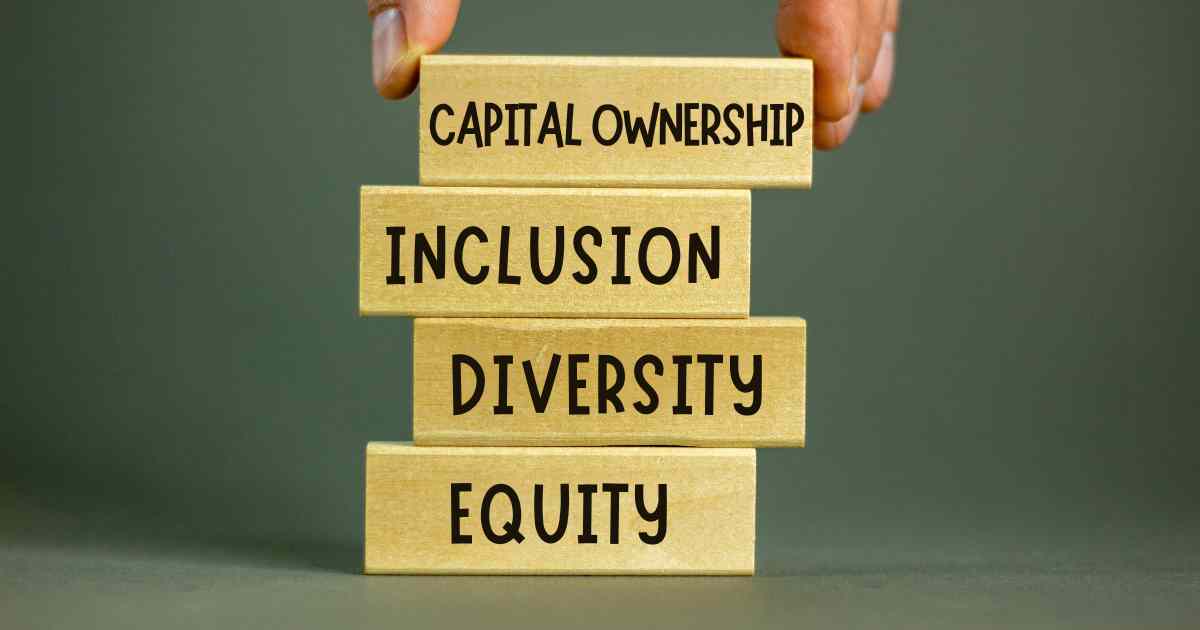
Having a successful business is the goal of all entrepreneurs. However, things can get a little tricky if you have a partner who wants to end the partnership. If you reach this stage, you need to know what capital ownership is.
Knowing what capital ownership (or owner’s equity) is and how it works is highly important if you are in a partnership. This will save you from having to pay legal fees in the event of the end of a partnership and can also help you see where your business is after the end of the partnership.
The concept of capital ownership does not only apply to large businesses but also small to medium-sized enterprises (SMEs). Just because your business is small, does not mean you should not be prepared for anything.
In this article, we look at what capital ownership and what it entails for your business.
What Is Capital Ownership?
Capital ownership or owner’s equity is the portion of the business capital that your partner would get if your partnership ends or it is liquidated. Typically, it’s calculated as the amount left after subtracting your company’s liabilities from its assets and is listed on the company’s balance sheet.
Your owner’s equity grows when you increase your investment into the business or if the company’s profits increase. And this leads to an increase in your company’s net worth.
In most companies, the owner’s equity is showcased in the statement of changes in equity. This statement is one of the four basic financial statements along with profit and loss, balance sheet and cash flow statement.
What Is Included in Capital Ownership?
There are a range of categories which make up owner’s equity, especially for sole proprietor and partnership-structured businesses. The following categories can increase or decrease your company’s owner equity:
Owner Investment: As mentioned before, when you invest more into your company, it will increase its net worth and your equity (share).
Retained Earnings: When your business is up and running, retained earnings can have a positive effect on your company’s equity growth and value. Earnings are the money available from your business operations which can be used to reinvest into the company or pay any debts.
Owner Withdrawals: If you take too much money from your business, it can have a negative effect on your business’ equity. If this happens, you can recover but ensure that the money you withdraw from the business is not too much.
Business Losses: If your business operations are not doing great and you are constantly losing money, it will completely erase your equity. This is very common in businesses that are unable to survive their losses.
For public companies, the following can affect your equity or shareholder’s equity:
Dividends: Dividends are usually paid from your company’s net income. Having dividends that exceed your net income can be a disadvantage for your cash flow and your equity.
Selling Shares: As a publicly traded company, selling shares increases the capital that is added to your equity. This is basically like when you reinvest into your own company.
Additional Capital: Any money that you raise above the par value is defined as additional paid-in capital. This contributes positively to your owner’s equity.
Treasury Stocks: If you buy back any stock from your investors, it is called treasury stock. Treasury stocks have a negative impact on your owner’s equity.
How Owner’s Equity Affects Your Business Structure
There are many types of companies, and each one has its own way of affecting the owner’s equity and the overall value of the company.
Sole proprietorship
In this business structure, the (sole) owner’s equity is a direct measure of your business’ net worth. The equity is determined by your investment into the business, profits and losses.
Formula: Owner’s total investment + company net earnings = owner’s equity. Subtracted from the equity is any personal withdrawals and outstanding debts.
Partnership
In a partnership, the owners/partners hold equity shares based on their contributions and the profit-sharing formula that you would have set out in the partnership agreement.
Formula: Partner contribution + profit shares = increased owner’s equity. Factors such as partner withdrawals and partner collective debts can decrease your owner’s equity.
Corporation
Corporation business structures entail that the company is owned by the shareholders. The equity of this type of company is in the form of stock/shares.
Formula: Shareholder investments + retained earnings = increased owner’s equity. Any decreases come from treasury stock purchases and corporate liabilities.
Note: In some company structures (sole proprietor and partnerships) it is called owner’s equity and in others (companies and corporations) it is called shareholder’s equity.
If you are not yet looking into your owner’s equity or capital ownership, then you really need to start. Not only does it help you see where you further invest for your business, but it also gives you insights into how much your equity is worth.
To make it simple for yourself, remember that the basic formula for owner’s equity is assets-liabilities. Use it to calculate exactly how much your share of the business is.
For more information on the different business structures and how they work, read our article on the SME South Africa website.






